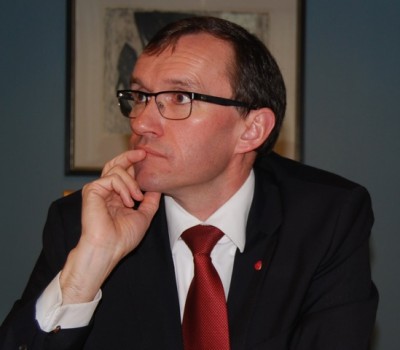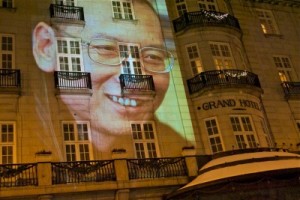Indications are getting stronger that diplomatic relations between Norway and China may soon normalize. Norwegian Foreign Minister Espen Barth Eide said at a meeting with foreign correspondents in Oslo on Wednesday that he’s “optimistic” after more than two-and-a-half years of tension between the two countries.

“My sense is that there’s a shared ambition (to resume normal relations),” Eide told members of the Foreign Press Association. “I’m optimistic.”
Political contact between Norway and China all but froze in the fall of 2010, when China blamed the Norwegian government for the Norwegian Nobel Committee’s decision to award the Nobel Peace Prize to Chinese dissident Liu Xiaobo. Chinese officials were furious and embarrassed, and all meetings between government ministers ceased, visas to China became hard to obtain and even cultural exchanges were disrupted.
Eide confirmed on Wednesday that concrete talks aimed at normalizing relations have been going on for several months at relatively high diplomatic levels. While avoiding a question as to whether he’s directly involved in the talks, he noted that he heads Norway’s foreign ministry, inferring that he thus is involved at least indirectly and supports the process. He also stressed that Norway and China have continued to cooperate in a variety of “multilateral” exchanges all along. “It’s just the direct, bilateral contact that hasn’t been there,” Eide said.

That may soon change. As Eide told newspaper Aftenposten earlier this month, the process of renewing contact at the political (ministerial) level has become “especially active” in recent months. “We also have a clear impression that China wants to normalize relations, and they see that’s in their interests,” Eide told Aftenposten.
He repeated that on Wednesday, and noted that other factors may put relations back on track as well: China’s new leadership was formally moving into place this week and presumably has more important issues to deal with than maintaining strained relations with Norway. Chinese officials are also keenly interested in Arctic areas where Norway has territorial rights, and have long wanted observer status on the multi-national Arctic council where Norway is a major player.
Eide, meanwhile, told Aftenposten that China no longer is demanding an apology for the Peace Prize from the Norwegian government, which it wasn’t about to get, and that Chinese officials now seem to accept that the Norwegian Nobel Committee is independent of government control. In short, both sides seem more eager to look forward instead of backward, Eide told foreign correspondents, and want to move forward as well.
Nukes, peace and the Arctic
The strained relations with China were not included on Eide’s own list of top priorities as foreign minister. He was most eager to talk about a conference on the humanitarian impact of nuclear weapons that took place in Oslo this week at the initiative of the Norwegian government. Even though none of the world’s nuclear powers took part, representatives from 127 countries did, and Mexico agreed to follow up Norway’s initiative with another conference to keep the issue of nuclear weapons (and the lack of preparedness for dealing with any detonation) on the international agenda. Eide said he hopes the conference will “inspire” a debate over nuclear weapons that’s been “stagnant” since the Cold War ended. Eide claimed that the probability that nuclear weapons may be used is higher now than during the Cold War, and that there is “no adequate preparedness” to deal with a detonation or an accident.
Norway’s other foreign policy priorities, according to Eide, remain developments in the Arctic and ongoing peace brokering efforts around the world, especially in Myanmar and between the Palestinians and the Israelis. He stressed the importance of a meeting next week of the so-called “donor group” of nations providing assistance to the Palestinians, acknowledging that the group is experiencing “fatigue” over the failure so far to find a solution. Eide will be leading the meeting in Brussels on March 19, “and I think it’s fair to say that 2013 will be a very significant year” in the peace process. “I know we’ve said that before, but it’s more true this time,” Eide said. “This is exactly the time to increase political momentum in the process,” he added, after the re-election of US President Barack Obama and elections in Israel.
Eide also seemed to agree with a report issued earlier this week by the Norwegian military’s intelligence unit, which claimed that there’s no longer great tension in Norway’s far northern areas because border issues with Russia have been settled and Arctic states including Russia have common interests in the region. The biggest threat facing Norway, according to the military’s Etterretningstjeneste, comes from Islamic and digital terrorists, not the former “super power” that is Norway’s neighbour.
In general, Eide said he thinks the world now looks at Norway not just as a small country in the far north but as an energy power and large investor. Norway’s oil-fueled economy now ranks as the 24th largest in the world, he said: “We’re no longer a small economy but a medium-sized economy, with few people.”
Views and News from Norway/Nina Berglund
Please support our news service. Readers in Norway can use our donor account. Our international readers can click on our “Donate” button:

